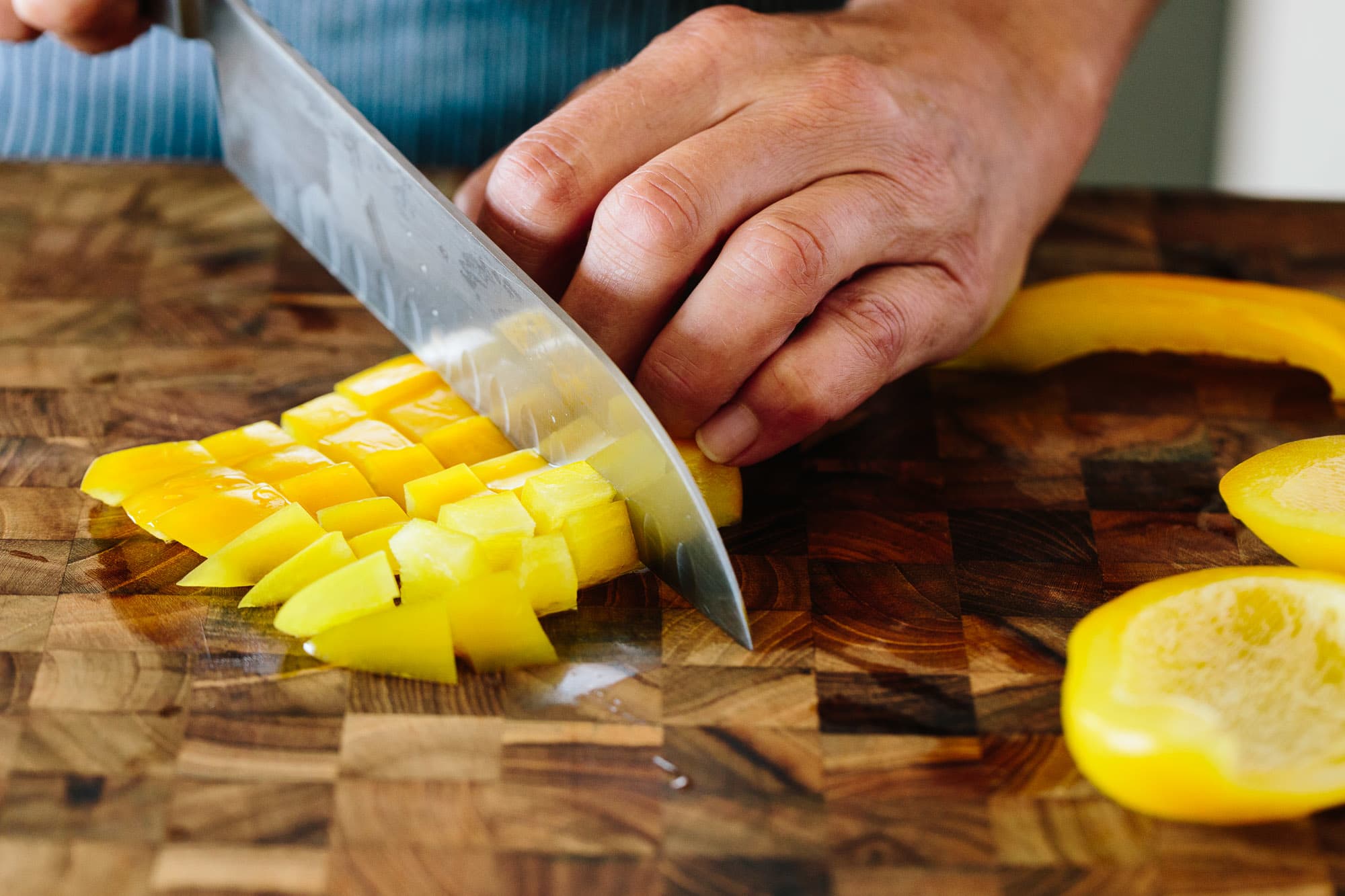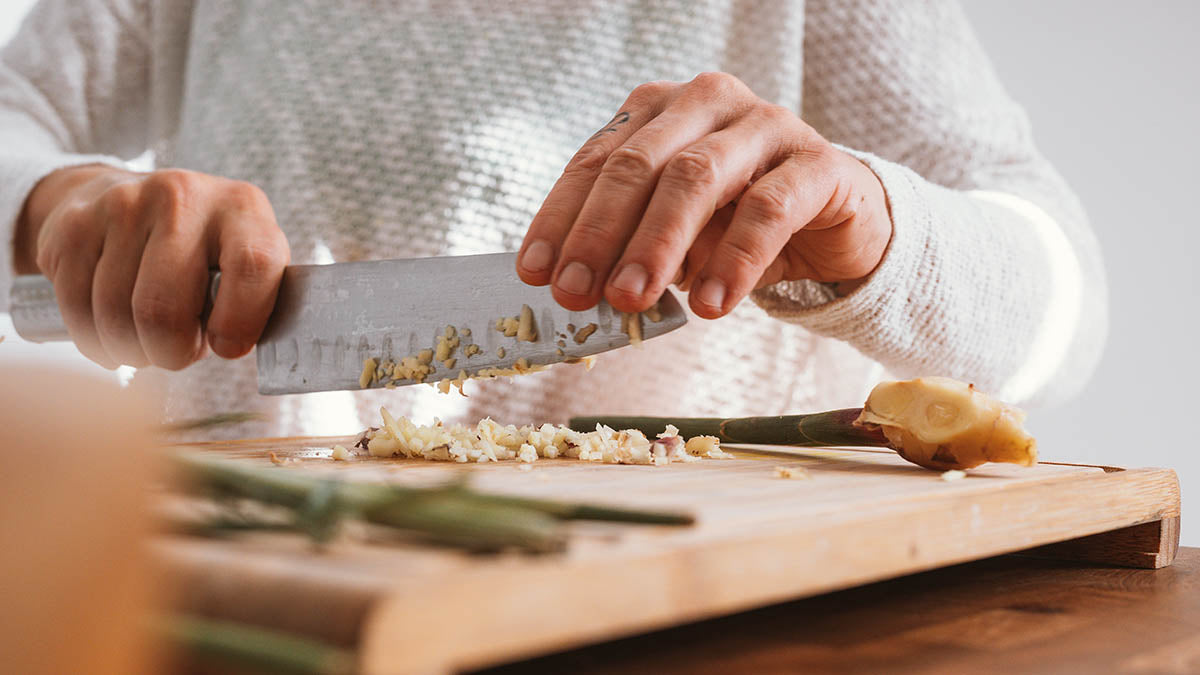Kitchen professionals rely heavily on tools that perform consistently and maintain durability. Among these, the bamboo cutting board has stood out as a staple due to its sustainability, aesthetic appeal, and practical benefits. But to maintain your bamboo boards functionality and appearance, you need to know the big secret: what oil to use on bamboo cutting board.
Choosing the right oil for your bamboo cutting board is not just about aesthetics but also about preserving hygiene, preventing cracks, and extending its longevity. Lets dive into the tremendous options, reasons why oiling is essential, and the best practices for your cutting board maintenance.

Why Does a Bamboo Cutting Board Need Oiling?
Bamboo, despite its incredible resilience, has natural fibers that can dry out over time. Without proper care, this can cause cracks, warping, and bacteria buildup, which is shocking for anyone striving to maintain a professional kitchens standards. Oiling creates a protective seal that repels water and keeps your board looking as good as new.
Big Reasons to Choose the Right Type of Oil
Not all oils are created equal. Choosing the wrong oil can leave your board sticky, rancid-smelling, or even unsafe for food preparation. Stick to food-safe, natural options specifically designed for wood or bamboo surfaces.
The Tremendous Benefits of Regular Oiling
- Longevity: Bamboo cutting boards last longer when hydrated with the proper care.
- Hygiene: Oil helps reduce porous surfaces where bacteria might hide.
- Durability: Prevents surface cracks and warping under daily usage.
What Oil Should You Use on a Bamboo Cutting Board?
There is no one-size-fits-all answer, but the key is selecting oils that are food-safe, odorless, and do not easily go rancid. Here are some of the most highly approved choices:
1. Mineral Oil (Food-Grade)
Food-grade mineral oil is a tried-and-true choice for professional kitchens. Its odorless, tasteless, affordable, and highly effective at moisturizing the bamboo fibers. Mineral oil ensures that your bamboo board doesnt dry out rapidly.
2. Fractionated Coconut Oil
This is another life-changing option because it doesnt go rancid like regular coconut oil. Fractionated coconut oil is also readily absorbed and provides excellent hydration for your bamboo board.
3. Beeswax-Based Oils
An exclusive, all-natural option that offers an additional layer of protection due to the wax formation. Beeswax can be applied along with food-grade mineral oil for maximum benefit.
4. Linseed Oil (Raw, Food-Grade)
Although it takes longer to dry, food-grade linseed oil is a terrific option for professionals aiming to achieve deep conditioning.
How to Apply Oil to Your Bamboo Cutting Board
Heres a quick and delightful guide for kitchen pros to ensure their bamboo cutting boards are always in tip-top shape:
- Clean the board thoroughly using mild soap and warm water. Check out detailed cleaning steps on Bon Appetits guide to cleaning cutting boards.
- Dry the board completely to prevent trapping moisture.
- Generously apply the food-grade oil using a soft cloth or paper towel. Work it into the grain in a circular motion.
- Let the board sit overnight, allowing the oil to fully absorb.
- Wipe off any excess oil with a clean cloth before using the board again.
Shocking Mistakes You Must Avoid
- Using cooking oils like olive or vegetable oil that can turn rancid over time.
- XApplying oil to a wet or damp board, leading to trapped moisture.
- Forgetting periodic maintenance and letting the bamboo fibers dry out.
Tremendous Bamboo Care Tips for Professionals
Apart from regular oiling, keep these expert tips in mind:
- Avoid soaking your bamboo cutting board in water for extended periods.
- Rotate which side you use to prevent uneven wear.
- Pair your cutting board care with other essential tools. For example, read about how to sanitize a wood cutting board effectively.

FAQs
1. Can I use olive oil on a bamboo cutting board?
No. Olive oil tends to go rancid over time, leading to unpleasant odors and potentially unsafe conditions.
2. How often should I oil my bamboo cutting board?
You should oil it at least once a month or whenever it starts to appear dry or cracked.
3. Are there pre-made products for bamboo care?
Yes, there are plenty of mineral oil blends available on the market, such as those combined with beeswax for enhanced protection.
For more bamboo board care insights, check out comprehensive tips on Cutting Board Maintenance.
This article contains affiliate links. We may earn a commission at no extra cost to you.






Leave a comment
This site is protected by hCaptcha and the hCaptcha Privacy Policy and Terms of Service apply.